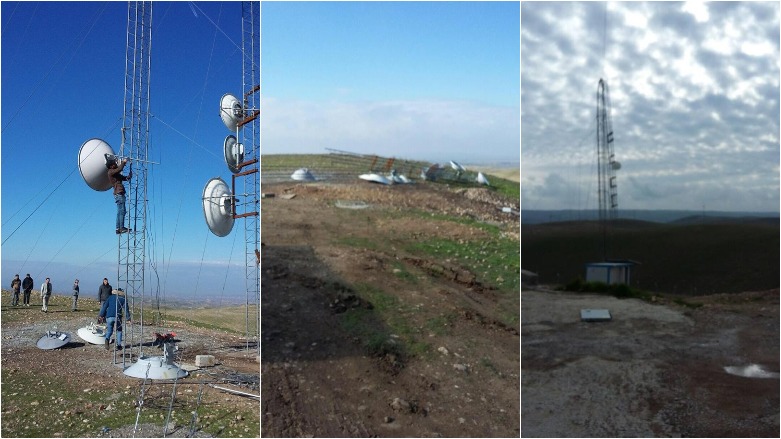In Kirkuk, Iraq dismantles ‘largest’ internet smuggling operation

ERBIL (Kurdistan 24) – The Iraqi Ministry of Communications announced on Monday that they had captured suspects charged with using unlicensed towers to illegally co-opt internet bandwidth in the disputed province of Kirkuk.
The ministry wrote in a statement that a team, “under the direct supervision of the Minister of Communications [Naeem al-Rubaie], succeeded in capturing a smuggling operation and will bring the thieves to justice.”
“In this successful operation, the team dismantled a group of internet smuggling towers in Kirkuk, which were using the internet capacity coming from the Kurdistan Region and also succeeded in disabling an [illegal] extended optical cable from Sulaimani to Kirkuk.”
The statement also noted that it was the "largest" such operation yet discovered, with the monthly revenue of the criminal enterprise estimated to be roughly $5 million.
The private businesses involved in the scheme were not named, but the ministry stressed that it would “blacklist” them after presenting the case to the judiciary.
“These companies are actively contributing to the destruction of the services of the Iraqi Ministry of Communications,” the statement read.
Private sector companies have invested in the internet in Iraq since 2003 after the fall of the former authoritarian regime.
The average monthly retail price paid by internet subscribers in Iraq is 25,000 Iraqi dinars (about $20).
Various restrictions are placed on internet companies operating under the control of the Kurdistan Regional Government (KRG) and the federal government. Depending on a company's territory and services provided, prices and availability can vary, creating a motivation for some providers to exceed their limits or territory illegally.
Editing by John J. Catherine
